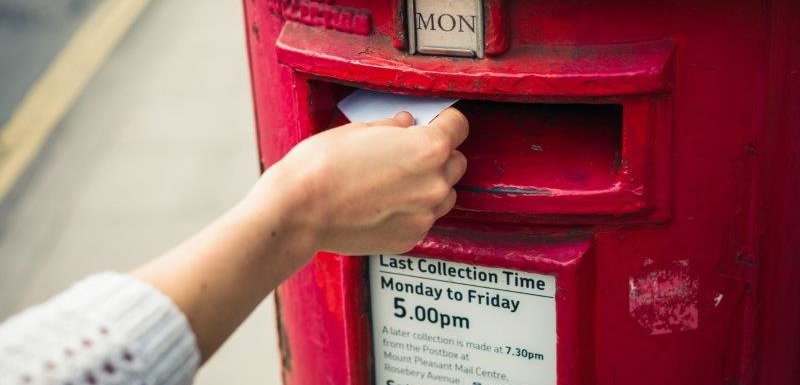
Initiating contact
This page deals with the delicate area of contacting your relative once you have traced them.
Using an Intermediary for Safety’s Sake
The Importance of only approaching your Birth Relative and maintaining your (and their) anonymity
When your birth relative doesn’t desire contact
Do you want to go ahead?
If you have found a current address for your relative you may be very keen to take the next step and make contact with them. However, you may also feel you want to take a pause and reflect on all the information you have gathered about them so far, and also think about whether or not it is the right time for you to make contact. For example, you may have other things going on in your life that is causing you stress, or it is the Christmas period which is generally a time to avoid making contact with relatives who are not expecting to hear from you.
If you’re unsure about whether to proceed it’s worth returning to and considering the points we first raised in the “Getting Started – Things to consider” page, namely:
- Is it the right time?
- What are you hoping for?
- What support do you have?
Even if you considered this at the beginning of the process it’s worth returning to it again at this point in your journey. It’s particularly important to reconsider what your expectations are, as well as the potential outcomes for making contact with your relative. You should consider the possibility that they may decline to have contact with you, or that you will learn new and potentially difficult information of which you were unaware. For example, you may find that they have another family, that they do not know about you, or that they have significant life problems.
Having support during the process of making contact is vital, particularly in the event that you receive a negative response, receive no response at all, or receive some upsetting information.
Using an intermediary?
Assuming you wish to go ahead there are two options – you can approach them directly yourself or you can use an intermediary. An intermediary might be a supportive relative or friend, the local authority or organisation that cared for you (particularly if you are under 25) or a paid-for service like the one by the Salvation Army, or a registered Adoption Support Agency.
The benefits of using an intermediary are:
- They may help with the initial emotional impact of the early phases of contact, whether the outcome is what you hoped for or not. They can also offer reassurance and support.
- They can give your birth relative support and the opportunity to discuss any complex feelings and concerns the contact may have raised for them and family members. They may have been taken by surprise by your wish for contact and may need time to think about how they wish to respond.
- Even in the scenario where they have also hoped that you would contact them one day they may still have to negotiate complex feelings raised by the contact and the implications for their family and their current circumstances – they may, for instance, have never told their partner or children about you.
Using an Intermediary for Safety’s Sake
The intermediary can help you to be mindful of your own wellbeing and that of your relative too. There is no guarantee that your relative knows about you or has told their existing family about you and this may cause them a lot of anxiety.
It may be too that you face a situation that you decide you want to refrain from. For example, you may learn that your birth relative has a history of violence, drug use or is on the sex offenders register. Using an intermediary means that either party can back away or make an approach at their own speed, safeguarding everybody involved.
The Importance of maintaining your (and their) anonymity
We
have touched briefly on this above but wherever possible you should try and
approach only the relative you are intending to contact in the first instance.
Avenues such as social media often provide us with the means to contact people
who know our relatives such as extended family or neighbours, but to do so
takes the control of the situation out of your hands, and can result in
unpleasant or even dangerous outcomes.
Cultural attitudes can differ and it’s important to consider that your relative’s
community may react differently to your contacting them than the community you
were raised in.
It’s crucial therefore not to reveal the reasons for your approach to anyone else other than your relative to protect everyone’s privacy. Once again, the use of an intermediary to make a considered, sensitive introduction is suggested and, even if you choose not to use them, then do ask their advice on how to draft the initial contact letter. You may also want to consider using another address other than your own to maintain your privacy.
Making an approach directly
Although using an intermediary service is advised, some individuals do not feel comfortable with handing over control of the process, or not proceeding immediately with the contact information they have. This can also work, but you should take the same precautions to protect yourself, such as writing a letter first to introduce yourself. Turning up at your relative’s house is not recommended, as it may put you in a dangerous situation and can increase the likelihood of the person rejecting contact.
When your birth relative doesn’t desire contact
It might be that at the
stage you make an initial approach the birth relative doesn’t wish to be
contacted. This can be devastating news and may be difficult to understand and
accept.
There are many reasons why a birth relative might not want to be in touch,
including:
- Feeling like they need more time
- Pressures in their life outside of the contact
- That the approach reminds them of a difficult period
- Worries over the reaction of families, friends or community, who may not know about you.
Sadly, you have to respect their decision, regardless of whether you believe it’s correct – keeping in contact is something that requires both of you to engage.
In this situation, it may still be worth asking your intermediary to try and get answers to any specific questions you may have such as medical questions or questions about wider family and possibly a photograph too.




